Most Covid rules set to be lifted in Wales on 7 August
- Published
- comments
Covid: What are the latest rules to be relaxed?
Most Covid rules in Wales - but not all - are set to be scrapped from 7 August.
The Welsh government said all laws on the number of people who can meet will end but First Minister Mark Drakeford warned against "a free for all."
Nightclubs would be able to reopen, but face masks will still be required in most indoor public places except in pubs, restaurants and schools.
Some rules will change on Saturday, meaning six people can to meet in private homes and holiday homes.
Despite the plan to ease many rules, people will be asked to continue working from home wherever possible.
Meanwhile, specific social distancing in workplace laws are expected to end from 7 August, with businesses left to decide if they still need to keep customers and workers apart through risk assessments.
Mr Drakeford warned the Senedd that the Delta variant is in every part of Wales and was "spreading quickly", with "real dangers" that could not be ignored.
He told a press conference: "This is not a free-for-all."
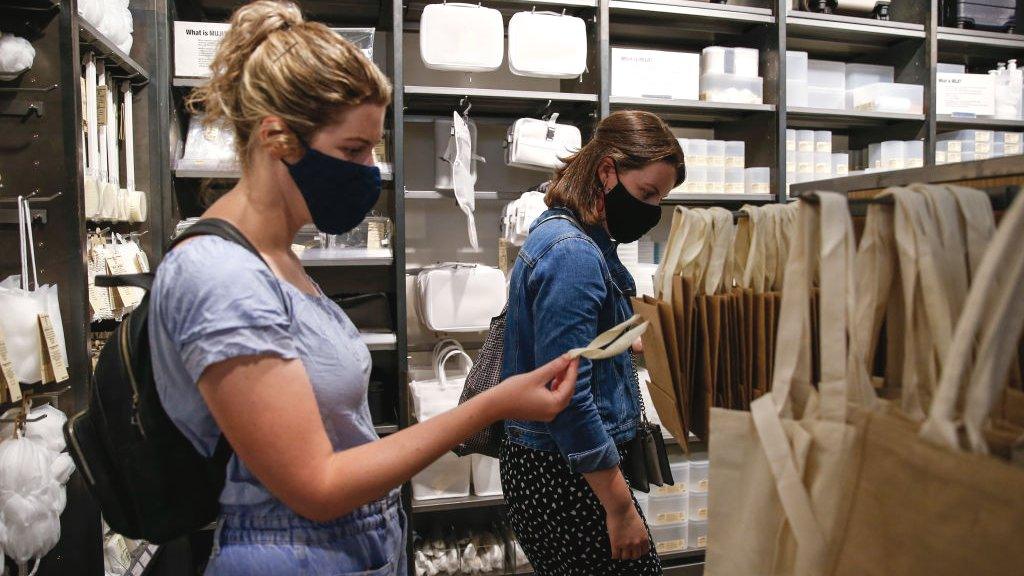
Face masks will still be required in shops in Wales after 7 August
"There will continue to be some important protections to help keep us all safe, especially those who are clinically vulnerable and who are perhaps the most anxious about an easing of restrictions."
The Welsh plan to move to its current lowest level of Covid restrictions - known as alert level 0 - on Saturday, 7 August, depends on the country's public health situation.
It means there will be more rules in Wales than in England.
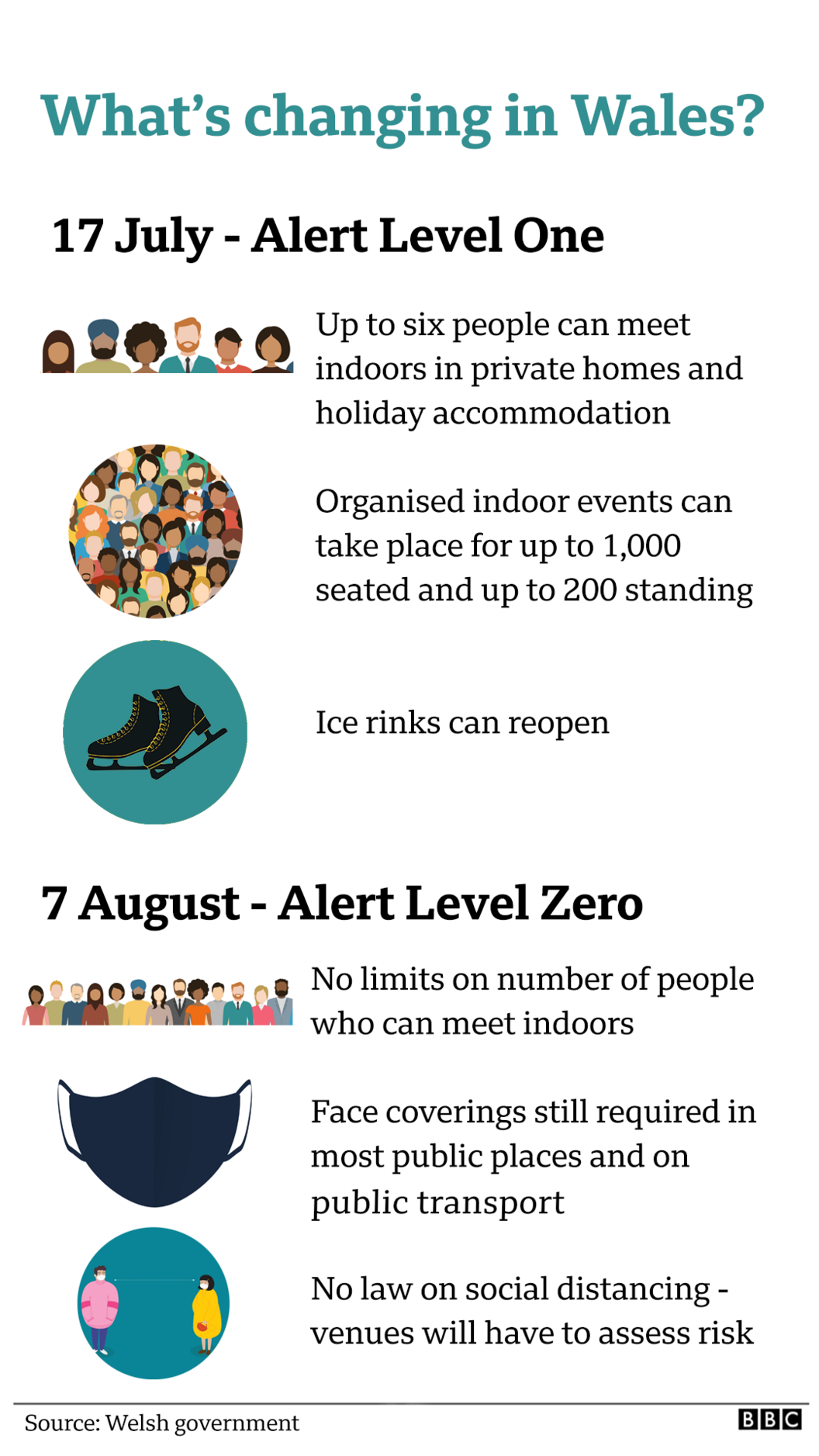

Mr Drakeford said while he was "reasonably confident" vaccinations had weakened the link between infections and serious illness, with the number of Covid patients in hospital relatively low, there was still "a risk that this third wave of the pandemic could cause real harm".
Although the case rate is rising Wales, the country has the lowest infection rate of the UK nations and has one of the world's highest vaccination rates.
Wales will move into the alert level one set of restrictions on Saturday - allowing for six people to meet in private homes and holiday accommodation.
Ice rinks will be able to reopen, and the limits on numbers that can meet in public places or at events outdoors will be removed.
Outdoor indoor events can take place for up to 1,000 seated and up to 200 standing from the same day.
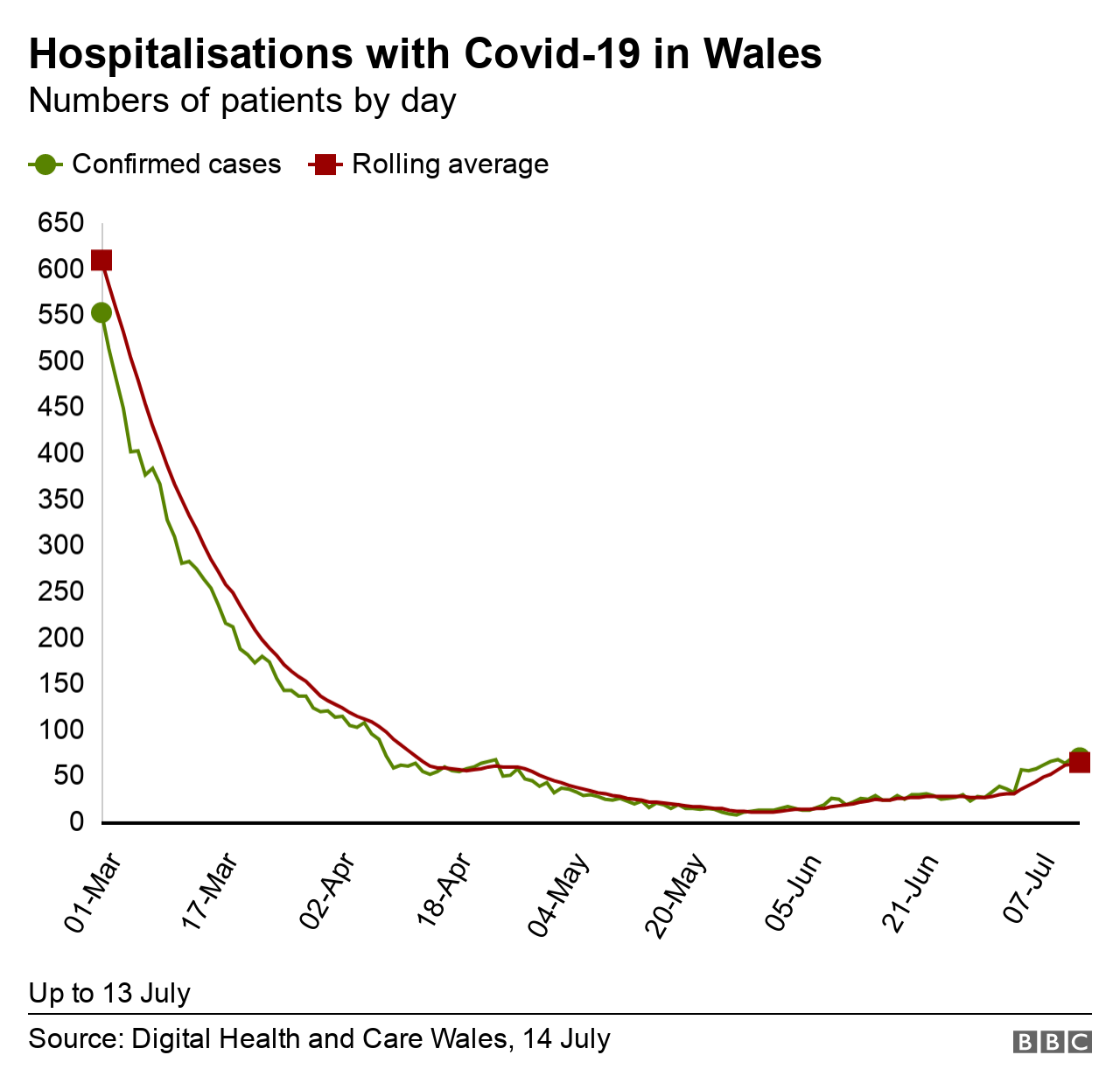

Fully vaccinated people will also no longer need to self-isolate if they are returning from an amber list country from Monday, following decisions taken in England and Scotland.
But people returning from an amber list country will need to have a PCR test on day two of their arrival - and cannot visit a hospital or care home within 10 days of returning from abroad.
Mr Drakeford criticised the UK government for having originally introduced the move, only putting it in place in Wales because it would have been "untenable" not to.
"The risk of re-importation of coronavirus from other parts of the world, and especially further new variants, has not gone away," he said.
"The removal of a defence against that risk, and especially at a time when the virus is in such rapid circulation, is hard to understand."
What Covid rules are ending in Wales on 7 August?
Under plans for alert level zero, ministers have proposed:
No legal limits on the number of people who can meet others
All businesses and premises will be able to reopen
Face masks will be required in shops, on public transport and when accessing health care, but not in hospitality or education
Pubs will no longer be obliged to provide table service
The face mask rules will remain in place despite the UK government's decision to scrap them in England.
Ministers are also planning, during August, to allow people who are fully vaccinated not to self-isolate if they are a close contact of someone who has tested positive.
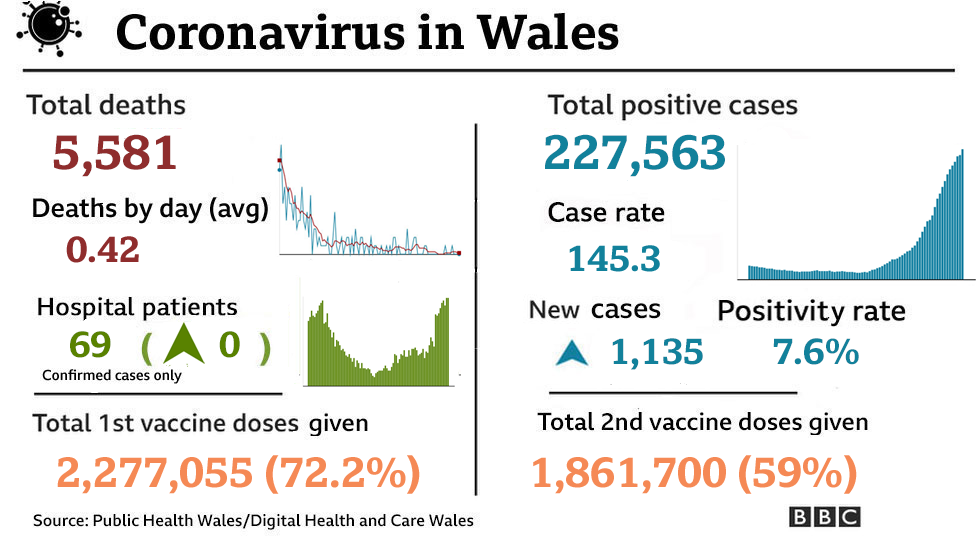

While the specific laws requiring social distancing in workplaces and hospitality are expected to go, the issue will be left for organisations to work out.
Specific social distancing laws are expected to be scrapped outdoors this Saturday, and indoors on 7 August.
The Welsh government's coronavirus control plan states it will be for organisations to assess the risks, "depending on the nature of the premises and the risks of exposure".
Welsh Conservatives Senedd leader Andrew RT Davies said: "Whilst we regret the Welsh Labour government has been the last government in Britain to publish a plan, it is a case of better late than never, and the lifting of restrictions will ensure we can get our economy and public services on the road to recovery."
Rhun ap Iorwerth, deputy leader of Plaid Cymru in the Senedd, added: "The important thing is that Welsh government doesn't follow the ill-judged timetable being set by UK Government in lifting all restrictions during a period of increasing cases."
According to the control plan, moving to 7 August will be "subject to no new variants of concern being identified in Wales, hospital admissions and deaths from Covid-19 remaining at relatively low and manageable levels and if the vaccination programme continues as expected".
Hospital admissions have risen in the past month but remain significantly lower than earlier in the pandemic.
Covid rates in Wales stood at 145.3 per 100,000 people on Wednesday, compared to 138.2 the day before.
There are 69 patients with confirmed cases of Covid in hospital, compared to 39 a week before. That number is at its highest since mid-April.


"The balance of harm is changing," says the Welsh government's new Coronavirus control plan, meaning the harms of restrictions are beginning to outweigh the harms of Covid.
Nevertheless, the tone remains laden with caution and an emphasis on collective, as well as personal responsibility.
While Mark Drakeford has rejected the idea of a "spurious freedom day", he has also acknowledged that all the home nations are heading broadly in the same direction.
But the first minister continues to stress the differences - keeping the requirement for face masks in most indoor settings and obligations on employers to undertake Covid risk assessments.
Throughout the pandemic, ministers in Cardiff Bay have been convinced that voters want to see a cautious approach and even as we head into what everyone hopes might be the end game, that continues to be the note they want to strike.

Restaurant's pandemic 'struggle'
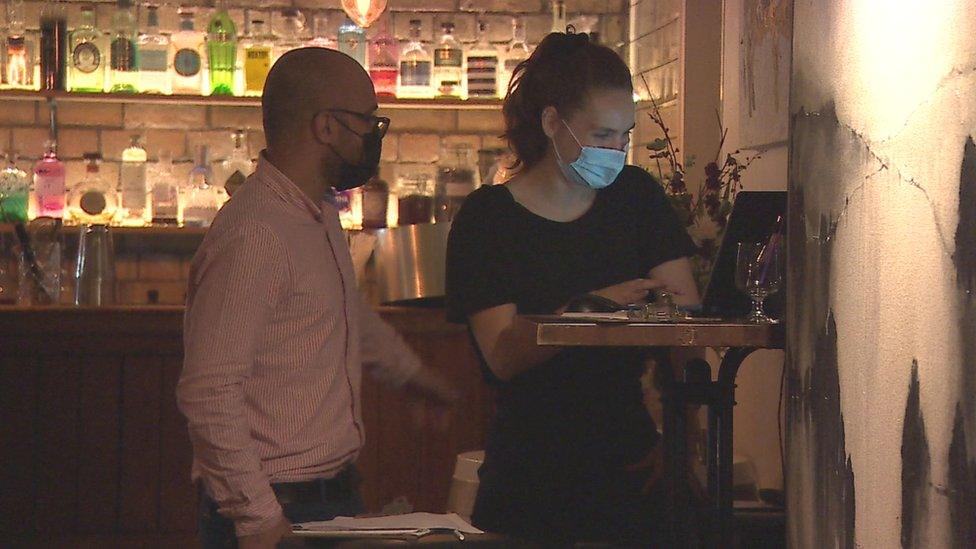
Restaurant boss Georgina Heffernan said customers may feel "vulnerable" if all social distancing measures were eased at once
"It feels like a long time coming," said Georgina Heffernan, from Cardiff restaurant The Potted Pig which had to halve its capacity to comply with social distancing.
However, she said some customers may feel "vulnerable" if all social distancing measures were eased at once.
"We're lucky as a business that we can still implement certain social distancing standards," she said.
"I think for us that will stay.
"Obviously, we do want more customers but we also want the customers we do have to feel as safe as possible.
"We do not want to alienate customers who do still feel vulnerable and that don't want to come out into a really busy setting," she said.
"It has been a struggle. It has been hard on us as a business," she said
"A lot of people don't see what goes on behind the scenes.
"We have gone above and beyond to try and deal with the pandemic and live the pandemic."

Industry body UK Hospitality Cymru said lifting restrictions in August was "brilliant", but warned a more cautious approach in Wales at the height of the holiday season could lead to "difficulties for customers and staff alike".
Sara Jones, head of the Welsh Retail Consortium warned that caution on returning to offices would likely "further push back the recovery for city centres and high streets where footfall remains over a quarter lower than pre-pandemic levels".
"Ministers needs to be prepared to consider how best to support struggling retailers if the return back to normal trading continues to take longer than anticipated," she said.
CBI Wales called for the Welsh Government "to provide clear and consistent guidance on safety proposals as soon as possible to give firms time to plan ahead".
The Federation of Small Businesses said that from 7 August, "almost all businesses in Wales will be able to trade at capacity due to the easing of social distancing requirements".
- Published11 July 2021

- Published4 July 2021
